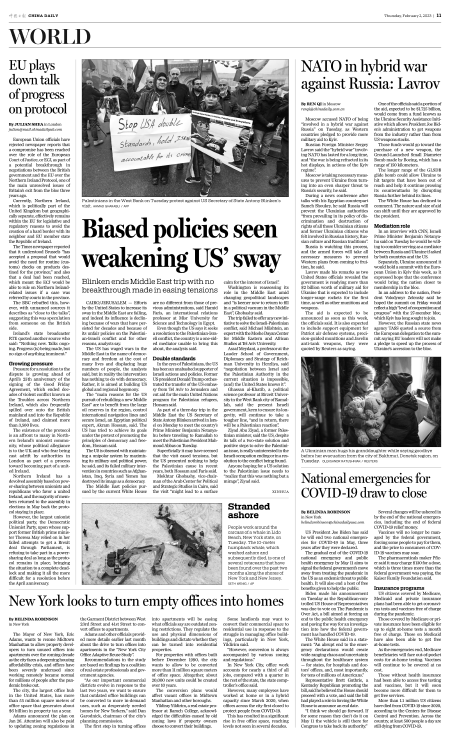US President Joe Biden has said he will end two national emergencies for COVID-19 in May, three years after they were declared.
The gradual end of the COVID-19 national emergency and public health emergency by May 11 aims to signal the federal government's move away from treating the pandemic in the US as an endemic threat to public health. It will also end a host of free benefits given to help the public.
Biden made his announcement on Tuesday as the Republican-controlled US House of Representatives was due to vote on The Pandemic is Over Act, a bill aimed at forcing an end to the public health emergency and paving the way for an investigation into how the federal government has handled COVID-19.
The White House said in a statement: "An abrupt end to the emergency declarations would create wide-ranging chaos and uncertainty throughout the healthcare system — for states, for hospitals and doctors' offices, and, most importantly, for tens of millions of Americans."
Representative Brett Guthrie, a Kentucky Republican promoting the bill, said he believed the House should proceed with a vote, and said the bill had played a role in forcing the White House to announce an end date.
"I think we should go forward. If for some reason they don't do it on May 11 the vehicle is still there for Congress to take back its authority."
Several changes will be ushered in by the end of the national emergencies, including the end of federal COVID-19 relief money.
Vaccines will no longer be managed by the federal government, forcing some people to pay for them, and the price to consumers of COVID-19 vaccines may soar.
The pharmaceuticals maker Pfizer said it may charge $130 for a dose, which is three times more than the federal government was paying, the Kaiser Family Foundation said.
Insurance programs
US citizens covered by Medicare, Medicaid and private insurance plans had been able to get coronavirus tests and vaccines free of charge during the pandemic.
Those covered by Medicare or private insurance have been eligible for up to eight at-home tests a month free of charge. Those on Medicaid have also been able to get free at-home tests.
As the emergencies end, Medicare beneficiaries will face out-of-pocket costs for at-home testing. Vaccines will continue to be covered at no cost.
Those without health insurance had been able to access free testing and vaccines, but it will soon become more difficult for them to get free services.
More than 1.1 million US citizens have died from COVID-19 since 2020, according to the Centers for Disease Control and Prevention. Across the country, at least 500 people a day are still dying from COVID-19.
belindarobinson@chinadailyusa.com

